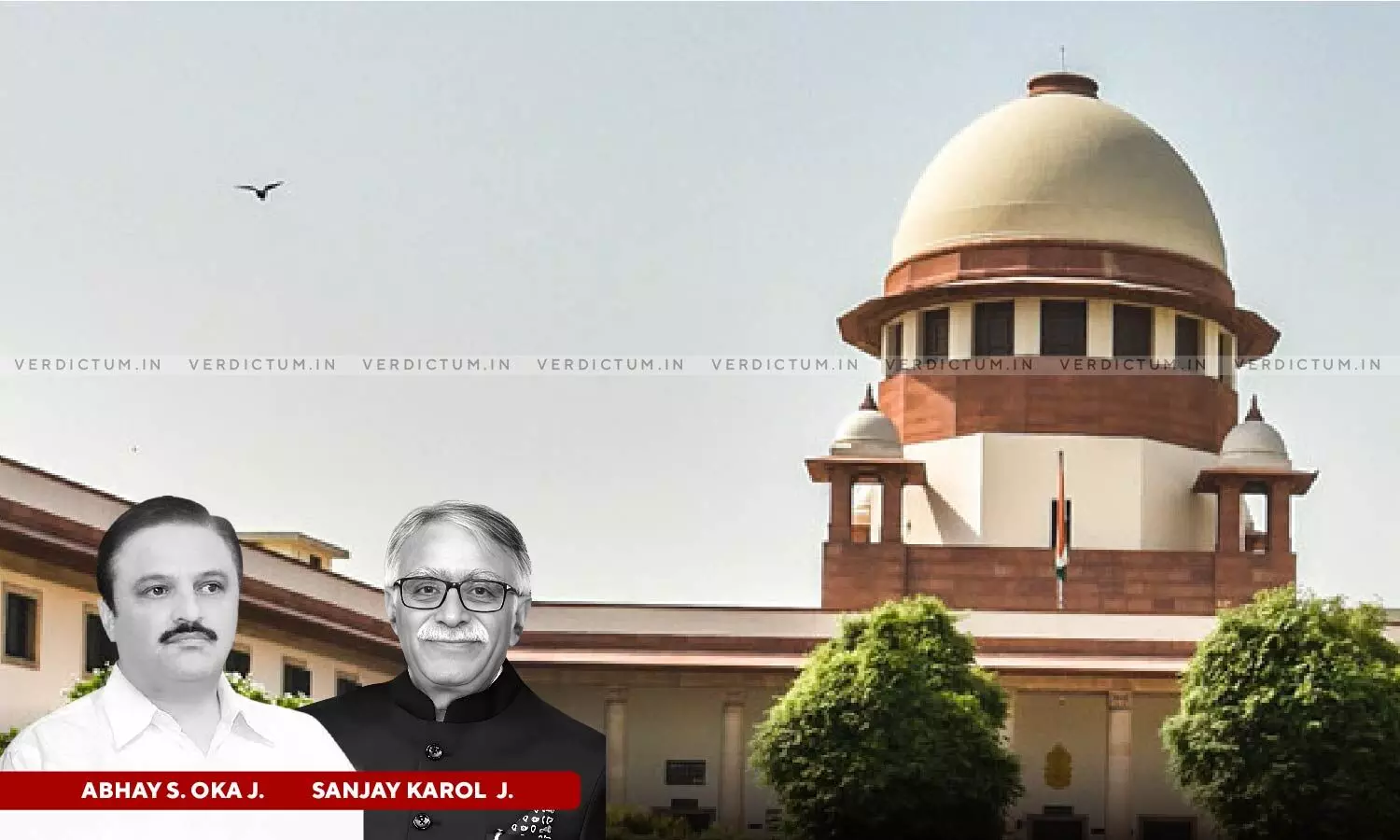
Restraint In Interfering With Questions Of Fact In Second Appeal U/s. 100 CPC Is Not An Absolute Rule: SC Observes
 |
|The Supreme Court dismissed a Civil Appeal challenging the impugned judgement of the High Court. The Court held that an appeal under Section 100 Civil Procedure Code (CPC) is maintainable only in two circumstances: when the case involves a substantial question of law or when the appellate decree has been passed ex parte. The Court noted that ordinarily in a second appeal the court should not disturb facts established by the first appellate court but that such a rule is not absolute.
A two-judge Bench of Justice Abhay S. Oka and Justice Sanjay Karol observed, “wherein it was observed that the restraint in interfering with questions of fact under the jurisdiction of the second appeal, is not an absolute rule. Where the court is of the view that the conclusions drawn by the court below do not have a basis in the evidence led or it is of the view that the appreciation of evidence “suffers from material irregularity” the court will be justified in interfering with such findings”.
Advocate Amol Suryavanshi appeared for the Appellant and Senior Advocate Dhruv Mehta appeared for the Respondent.
The case was regarding a property dispute between two brothers, Gurbachan Singh (Appellant) and Gurcharan Singh (Respondent), who inherited a piece of land from their father, Suchet Singh, who died intestate in 1942. The Respondent bought a piece of land from Faqir Singh, who claimed to have an exclusive title and possession over the land. The Appellant forcibly took the land from the Respondent, claiming that Faqir Singh did not have any exclusive title or possession over the land. The Respondent filed a suit for possession of the disputed property, which the Court dismissed. The High Court also upheld the judgement.
The Court asserted that the High Court had not erred in not having framed substantial questions of law under section 100, CPC. “This case arises out of a dispute in Punjab and therefore, the rigors of section 100 do not apply. It has been held by this court that in appeals arising out of the state of Punjab or the State of Haryana, courts are not required to frame substantial questions of law as per section 100 of CPC. The Constitution bench in Pankajakshi (Dead) through LRs v. Chandrika had held Kulwant Kaur v. Gurdial Singh Mann which held section 41 of the Punjab Courts Act, 1918 to be repugnant to section 100, CPC to be bad in law, thereby implying that section 41 of the Punjab Court Act holds as good law”, the Court noted.
The Bench placed reliance on Balasubramanian and Anr. v. M. Arockiasamy (Dead) Through LRs. ((2021) 12 SCC 529) and noted that although the general rule is that a Court of Second Appeal ought not to disturb the facts established by the first Appellate Court, there are exceptions to the rule. The Bench asserted, “As already noted above, another ground of objection taken by the Appellant is the fact of the impugned judgement entering into a reappreciation of evidence. While it is true that ordinarily, in a second appeal, the court must not disturb facts established by the lower court or the first appellate court. However, it is also equally well recognised that this rule is not an absolute one or in other words, it is not a rule set in stone”.
Additionally, the Court noted that the Appellant in the case had sold a plot of land, claiming to be the exclusive owner of the property. However, he had previously denied that his father had ever partitioned the property in favour of himself and his brother. This contradiction was found to be material, as it suggested that the Appellant was not being truthful about his ownership of the property. Therefore the Court held that there were no faults in the findings of the High Court.
Accordingly, the Court dismissed the Appeal and upheld the impugned judgement.
Cause Title: Gurbachan Singh (Dead Thr Lrs) v. Gurcharan Singh (Dead Thr Lrs) And Ors. (2023 INSC 639)